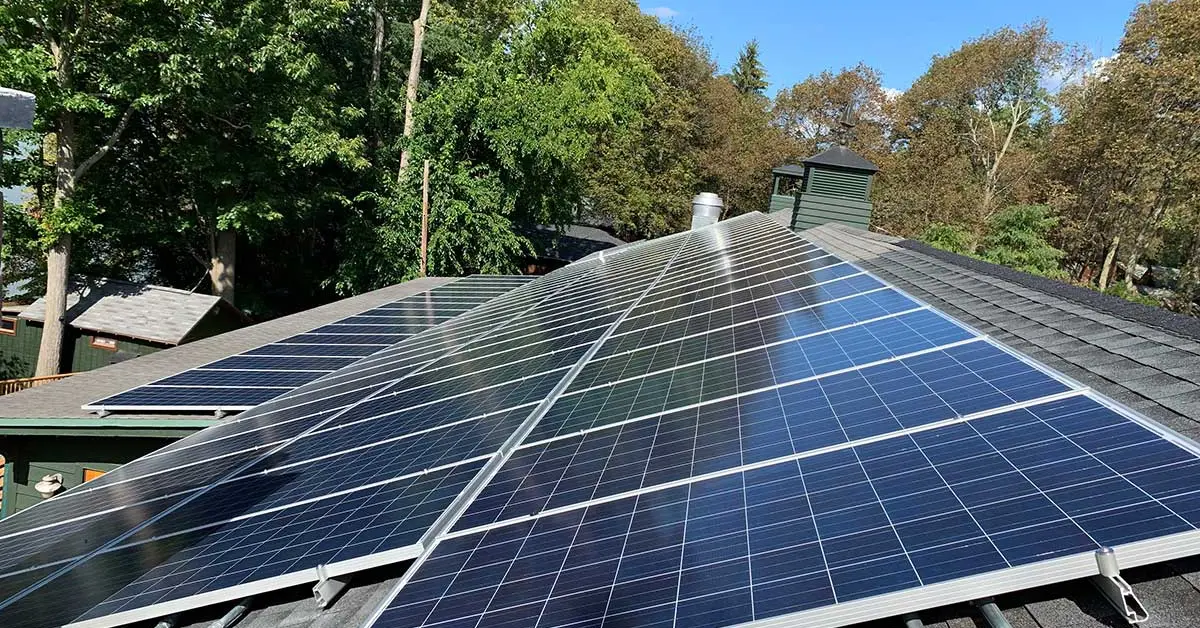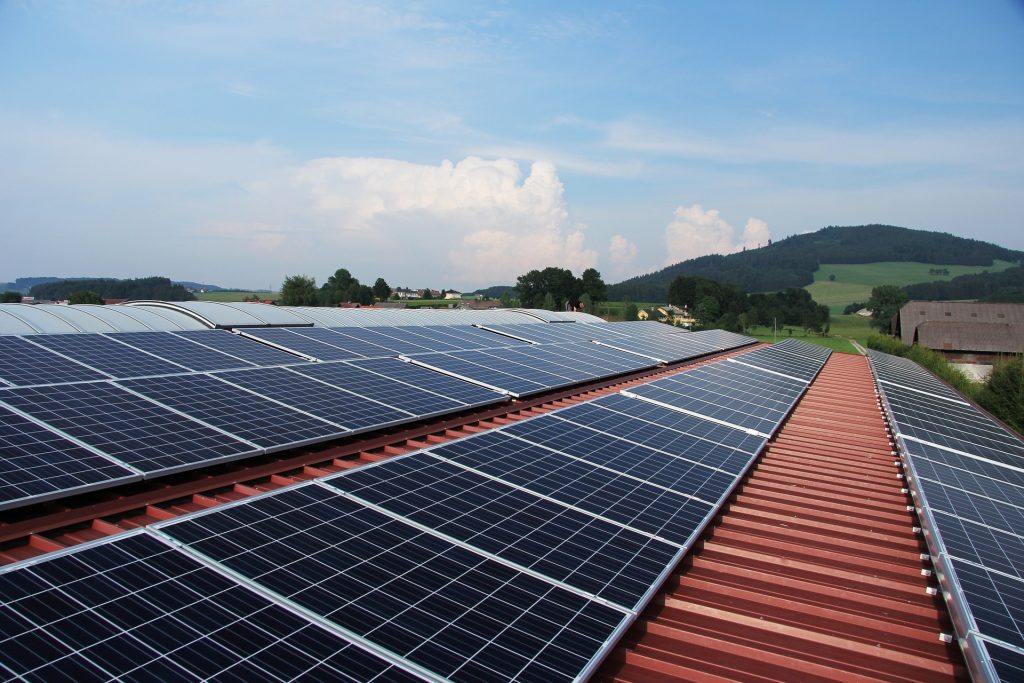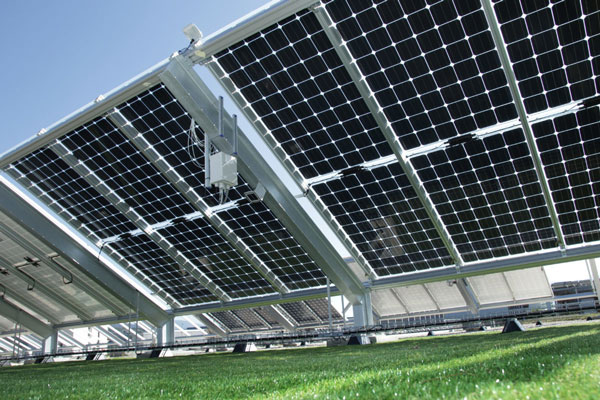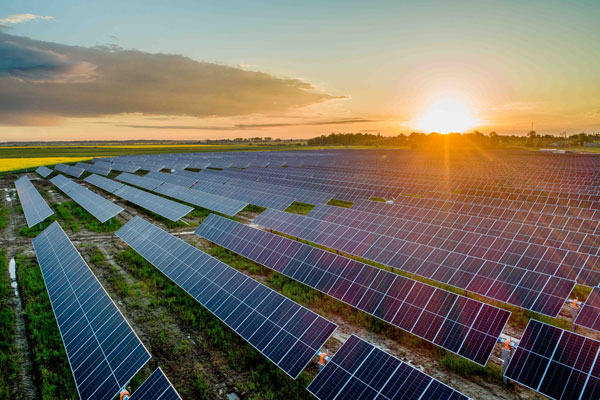What Solar Warranties Cover
Performance WarrantiesAnother consideration when evaluating solar panel warranties is the performance guarantee, which guarantees the panels will continue to operate at a certain percentage efficiency in a set period of time. Manufacturers will offer a power performance guarantee that might be something like "at least 90% performance at 10 years and 80% at 25 years," for instance.
Product Warranties
This warranty mainly protects the customer from manufacturing defects fort the product or from durability issues. Usually, the warranties on solar panels are between 10 to 12 years of the manufacturer. A bunch of products has prematurely worn panel coatings, likely due to the harsh corrosive saltwater air in coastal mining areas, and the company receives some warranty claims for honoring.
Workmanship Warranty Workmanship warranties insure the installation work. Is if a storm causes the panels to become unattached due to improper installation, this warranty would pay for all of the costs to make the necessary repairs. This warranty can be voided should you use a scammer for installation, so you need a certified installer from the panel manufacturer.
Service Warranties
These are warranties extending to extra services which include but not limited to maintenance checks and updates in software for system monitoring tools. An additional example that is measurable: warranty based bi-annual maintenance checks to test and verify full operation and detect issues early on.
Full Warranty
While a general warranty on the panels is definitely a good start, a full warranty will likely also include newer components such as inverters and mounting components. This can be something like covering inverter replacement for up to 15 years under a particular warranty, which is a great benefit because inverters normally only last about 10 years compared to the panels.
Warranty Transferability Another appealing aspect of the warranty is that it is transferable if you sell the home to a new owner, which gives the home a greater perceived value. According to statistics, homes with solar panel warranties that are transferable sell for 4% more than those that are not.

Comparing Warranty Terms Across Manufacturers
Differences In Length Of Coverage Different manufacturers provide warranty from three to six years. Manufacturer A may provide you a 25-year performance warranty, Manufacturer B on the other hand may provide you a 30-year performance warranty, etc. This could have huge implications for the benefits and costs in the long run.
Differences in Performance Guarantee Levels Between Manufacturers Manufacturers also differ in the level of performance guaranteed over the warranty period. One manufacturer might guarantee that their solar panels are going to be performing at a minimum of 85% output after 25 years, but another might set 80%. This 5% variance could add up to a lot of juice over time.
Inclusions and Exclusions in Product
Warranties Product warranties vary significantly on what they cover. For example, the warranty from Manufacturer C only covers the panels, not the auxiliary equipment (inverters). On the other hand, Manufacturer D offers a blanket warranty that covers even inverters and even batteries, which can be seen as a significant improvement.
Warranties on Service and Workmanship
Workmanship warranties, which include the quality of how an item is installed and put in, are usually variable. Even some of the best solar panels on the market require that only professionals with certifications can do the installation to keep the warranty valid, they also need to fulfill this requirement in order to maximise long-term reliability and performance.
Advanced Options and Portability
Few companies offer extras like online dashboard to track your warranty throughout it's life. Additionally, warranties tend to be easier or more difficult to transfer to a new homeowner. A transferable warranty is a major selling point, reflecting more confidence and support behind the product.
Product Warranty Comparisons Some comparisons are specific to certain industries, specific case studies which explore key warranty terms. A hypothetical example might be a comparison of responses and coverage by different models of solar panels when two similar homes, each with a different set of panels, faced the same damage (perhaps a hurricane) caused by environmental factors which would test the literalities of each warranty but also the practical implications of warranty terms.
Importance Of Warranty For Longevity And Performance
Solar panel warranties are essential because they ensure that the panels carry at least some minimum efficiency level over a specified time period. Often, this will mean a manufacturer guarantees their panels will operate at better than 80% efficiency for 25 years. This guarantee allows customers to more accurately assess ROI.
Reducing Defect Risk
As important as product warranties are in protecting consumers from the costs of unexpected failures, products will occasionally have defects. One batch of panels showed higher degradation than expected, and the manufacturer swapped them out without any additional cost, using the warranties to absorb that cost.
Incentivizing Quality Install
Workmanship warranties incentivize quality install practices, which are integral to getting the most out of panels. Mishandling the installation can damage not only the efficiency but also the machinery itself. 5% loss in output due to misalignment covered by installation warranty as revealed in a study
Most thorough
Some warranties cover all the way down to the individual panels and others include inverters and batteries. A holistic approach such as this is important as these components can also have an impact on the long-term performance and life of the system as a whole. Wearing parts are going to need to be replaced, an inverter, and these can be costly, a good warranty will help offset these costs.
Consumer Confidence
When it comes to building consumer confidence, warranties from RSPN also help to increase consumer confidence in solar technology. Solar is a seeing is believing technology and if folks know that their investment is protected they will be more likely to make that more complex choice to go to solar and help accelerate the passage of renewable energy adoption.
Quantifiable
Now, consumers can quantify the coverage specifics and claims stats and decide to purchase panels in a data driven manner. An example may be data indicating that panels of a specific manufacturer have a lower frequency of claims; thereby inferring a higher level of reliability and performance.
Common Issues Addressed By Warranties
Warranties usually concerning the breakdown of solar panels over time due to wear and tear. Companies typically guarantee a certain percent of power degradation per year of the panels. A standard warranty will cover less than 0.7% 1 year peak annual degradation up to at a minimal a 80% performance level by year 25.
Manufacturing Defects
A case of defective manufacturing may affect the solar panel performance and also its life. If it is trying to avoid the recall process, it means that the defect is serious enough that it would likely be covered by a warranty and the manufacturer has been notified and may do something about it. This is when a manufacturer was forced to recall an entire model because of overheating problems of the bypass diodes for the first time ever, which is the type of incident that can be easily quantified.
Solar Panel Warranty
Environmental damage High winds and hail are also covered under solar warranties. Terms frequently include panels that are certified for hail up to 1 inch in diameter and wind up to 140 miles per hour. In some cases, this can fall outside the lines of warranty, but for the most part, if damage happens within that space, the warranty will generally take care of the repair or replacement costs.
Microcracks in solar cells
Microcracks in solar cells can form during transport or installation and sometimes are not visible right from the start. Warranties covering microcracks ensure, for a certain amount of time, a performance that does not degrade too much over time. Panels have even been replaced under warranty due to untreated micro-cracks causing too much power drop.
Inverter failures
An inverter is essential for converting solar power to electricity; therefore, many warranties provide meaningful language for inverter failures. In general, modules come with better warranties than inverters generally running for 25 years, and you get around 10 - 15 years warranty for the inverter. One instance was problematic inverter getting replaced free of charge under warranty, significantly multiplying total yield of the system.
Connectors and Junction Box Problems
Connectors and the junction boxes is a electronic part that expose to potential damage as a part of normal operation may result in compromised output power if it were to scale back. It is very important for warranty coverage on these components since they help in the functioning of the solar array without obstruction. Some situations may be documented with manufacturers requiring whole junction boxes to be replaced to comply with warranty terms.

Tips For Claiming Warranty Benefits
Keep a Record of Everything
It is important to hold on to proof of purchase receipts, warranty cards, and keep a log of all communication with the manufacturer. Detailed documentation can speed up the claims process if a panel fails. In most cases the manufacturers ask to see proof of purchase and of professional installation to be able to process the warranty claim.
Routine maintenance and inspection
Routine inspection and maintenance of your solar array based on manufacturer's instructions can solve a lot of problems before the escalate and can provide a strong position for a warranty claim. A claim of degradation beyond the guaranteed limits, can note the importance of annual maintenance checks.
Respect the terms of the warranty
All the valid reasons your appliance repair serviceman has pointed out is not actual reasons in the warranty terms, so be rational. For example, if your warranty includes the failure of the the inverter then you can tell them this and show them where in the warranty it states that point. The consumer should know the terms of what is included, what is excluded as well as how long the warranty is for.
And Use Only Authorized Service Providers
Avoid voiding warranty claims, and always have repairs and replacements done by the service providers authorised by the manufacturer. Further costs to the homeowner resulted after a solar panel system warranty was voided as the homeowner used unauthorized contractors for repairs.
Report Such Shortcomings Immediately
Any deficiency in behavior or performance should be immediately reported. You never know, when a panel starts to sag, or a trick starts to give, informing immediately of an error, during the period of the contract, allows to fix the problem with: peripherals instead of claiming insurance, with additional costly action.PostMapping your links early is your lifeline.
Monitor System Performance
A detailed log of system performance is important for recognizing trends that may suggest a larger problem. If a gradual loss of efficiency is noticed, the data that has been logged can be used to prove that the panel is degrading at a faster rate than the warranty specifications and so a claim can be made.





